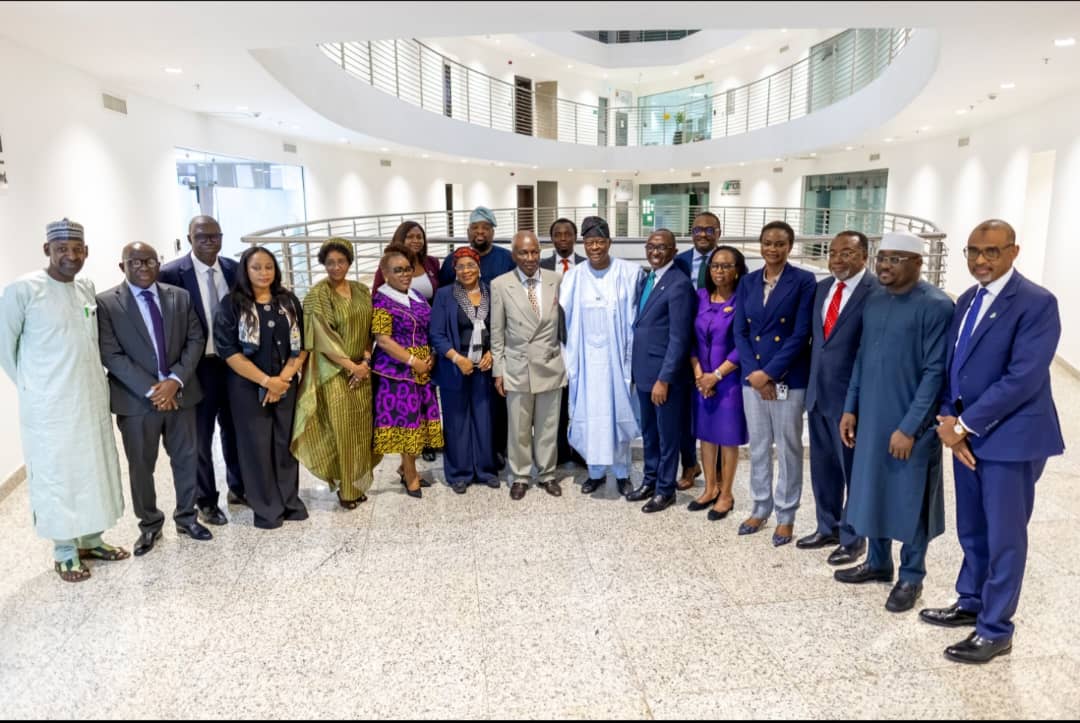The International Monetary Fund (IMF) has projected that global growth will decline to 2.8 per cent in 2025, as significant policy shifts continue to unfold across the world.
This projection is contained in the IMF’s latest World Economic Outlook (WEO) Update for April 2025, titled “A Critical Juncture Amid Policy Shifts”, released on Tuesday.
According to the IMF, the rapid escalation of trade tensions and exceptionally high levels of policy uncertainty are expected to significantly impact global economic activity.
The report noted that, following a series of unprecedented shocks in recent years, global growth remained stable but lackluster in 2024, and was already projected to remain subdued in the January 2025 WEO Update.
However, it said the landscape had changed as governments around the world reordered policy priorities.
The IMF said since the release of the January 2025 WEO Update, a series of new tariff measures by the United States and countermeasures by its trading partners had been announced and implemented.
“This has ended up in near-universal US tariffs on April 2 and bringing effective tariff rates to levels not seen in a century. This on its own is a major negative shock to growth.”
The report said based on the complexity and fluidity of the current moment, the report presented a “reference forecast” based on information available as of April 4, 2025.
It said it was also based on information including the April 2 tariffs and initial responses, in lieu of the usual baseline.
“Under the reference forecast, global growth is projected to drop to 2.8 per cent in 2025 and 3 per cent in 2026, down from 3.3 per cent for both years in the January 2025 WEO.
“This is corresponding to a cumulative downgrade of 0.8 percentage point, and much below the historical (2000–2019) average of 3.7 per cent.”
The report said among advanced economies, growth was projected to be 1.4 per cent in 2025, like in the US, projected growth was expected to slow to 1.8 per cent in 2025 and 1.7 per cent in 2026.
“This is a pace that is 0.9 percentage point lower relative to the projection in the January 2025 WEO Update, on account of greater policy uncertainty, trade tensions, and softer demand momentum.”
It said in the Euro area growth at 0.8 per cent was expected to slow by 0.2 percentage point.
For emerging market and developing economies, growth was expected to slow down to 3.7 per cent in 2025 and 3.9 per cent in 2026, with significant downgrades for countries affected most by recent trade measures, such as China.
The report said for Sub-Saharan Africa, growth was also expected to drop from 4.0 per cent in 2024 to 3.8 in 2025 and recover modestly to 4.2 in 2026.
“Among the larger economies, the growth forecast in Nigeria is revised downward by 0.2 percentage point for 2025 and 0.3 percentage point for 2026, owing to lower oil prices.”
It said global headline inflation was expected to decline at a pace that was slightly slower than what was expected in January, reaching 4.3 per cent in 2025 and 3.6 per cent in 2026.
“For advanced economies there will be notable upward revisions and slight downward revisions for emerging markets and developing economies in 2025.”
The report said intensifying downside risks dominated the outlook, amid escalating trade tensions and financial market adjustments.
“Ratcheting up a trade war and heightened trade policy uncertainty may further hinder both short term and long term growth prospects, while eroded policy buffers weaken resilience to future shocks.
“More limited international development assistance may increase the pressure on low-income countries, pushing them deeper into debt or necessitating significant fiscal adjustments, with immediate consequences for growth and living standards.”
It said on the upside, a deescalation from current tariff rates and new agreements providing clarity and stability in trade policies could lift global growth.
According to the report , at this critical juncture, countries should work constructively to promote a stable and predictable trade environment.
It also said countries should work together to facilitate international cooperation, while addressing policy gaps and structural imbalances at home.
“ This will help secure both internal and external economic stability.”
The report said to stimulate growth and ease fiscal pressures, policies that promoted healthy aging and enhance labour force participation among older individuals and women could be implemented.
“ Additionally, productivity growth can be fostered with better integration of migrants and refugees and mitigation of skill mismatches,”it added.(NAN)





